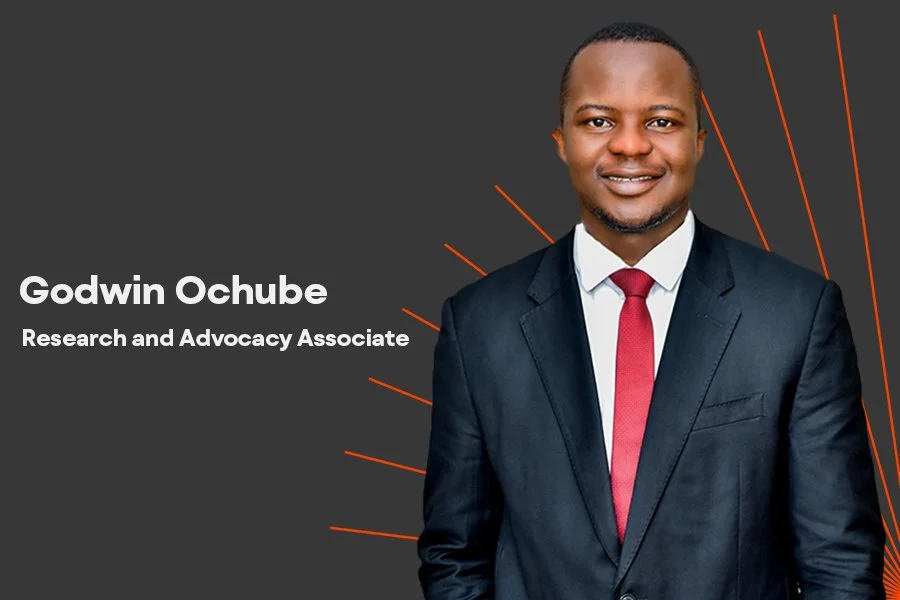Godwin Ochube
Research and Advocacy Associate
Our Gap Closer of the month, Godwin Ochube, Research and Advocacy Associate, speaks about his work at the Foundation and what he finds most rewarding about it. “Witnessing the positive impact of reform projects implemented by alumni on the people and systems of government keeps me engaged and committed every day,” he says.
Please share your educational and professional background
My name is Godwin Agaba Ochube and I currently serve as a Research and Advocacy Associate at the Foundation. I hold a Bachelor’s and Master’s degree in Sociology.
What inspired you to pursue a career in the development sector?
My journey into the development sector began in 2020, at the height of the COVID-19 lockdown. During that period, I volunteered as an emergency school teacher at an IDP camp in Benue State. It was a transformative experience. I encountered displaced children who were completely cut off from education and basic opportunities. I also experienced firsthand the bureaucratic bottlenecks and resistance in trying to secure even the most basic amenities for them. That exposure left me deeply convinced that real change is possible when the government is supported with the right evidence and guided by sound policies. Development is interconnected. Once the right policies are institutionalised, reforms become functional, and children like those I met in the camp would not have to suffer needless exclusion. That experience pushed me into this sector, with the conviction that research and evidence-based advocacy could bridge these gaps.
What do you do at the Foundation?
At the Foundation, my role revolves around leading and supporting empirical research, analysing and interpreting data within the scope of our mandate, and deploying findings through multiple advocacy platforms. I see myself as a bridge between research and practice, transforming complex data into clear, actionable insights that stakeholders can use to make informed decisions.
Beyond generating knowledge, I also support the public service in applying critical findings from our studies which, for me, represents the true value of research.
What does your typical day look like?
A typical day for me is intense but fulfilling. It involves writing and reviewing literature, deploying analytical tools to structure and present data, and managing both internal and external stakeholders to ensure research activities are seamless. I am mostly immersed in writing, conceptualising, analysing, and drafting outputs that speak to policy gaps and reform opportunities.
What makes the work that we do at the Foundation unique?
What makes the Foundation’s work unique is the paradigm shift it created in me. Before joining, I mostly engaged with Nigeria’s challenges through critiquing— pointing out the failures without contributing to solutions. The Foundation provided me with a platform to move beyond criticism to collaboration. It taught me to see government not as an entity to condemn but as a partner to support. In listening to public servants, I came to appreciate the complexities of governance and the "why" behind many challenges. Together, we now co-create solutions, drawing on best practices and research insights. This approach has been particularly inspiring because I can see how public servants engage with our findings and how those engagements contribute to reform efforts. For me, it feels like becoming an active part of the change I have always longed for in society.
What do you find most rewarding about your work?
The most rewarding aspect of my work is knowing that the research I conduct forms the foundation upon which many of our interventions are built. From identifying gaps to generating hypotheses, testing them in the field, and eventually proposing data-driven solutions, I see our contributions influencing practice in real and measurable ways. Employing diverse research designs and methodologies to uncover problems and craft holistic solutions gives me immense satisfaction. I consider every study not just an academic exercise but a pathway to reform, one that makes governance work better for the people.

